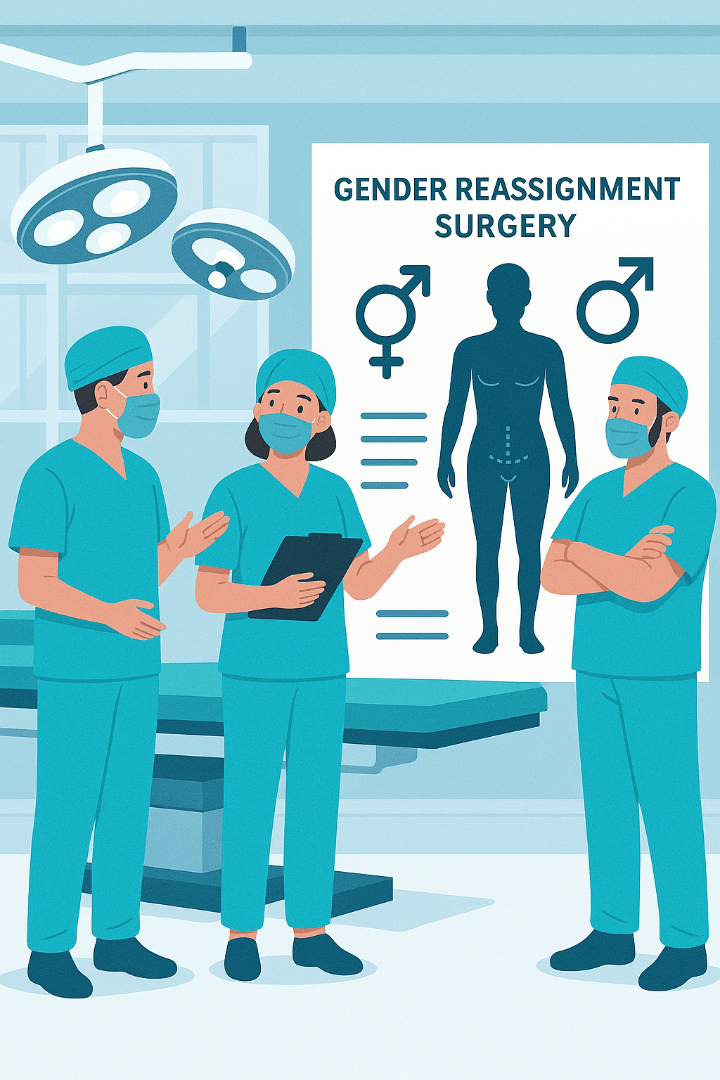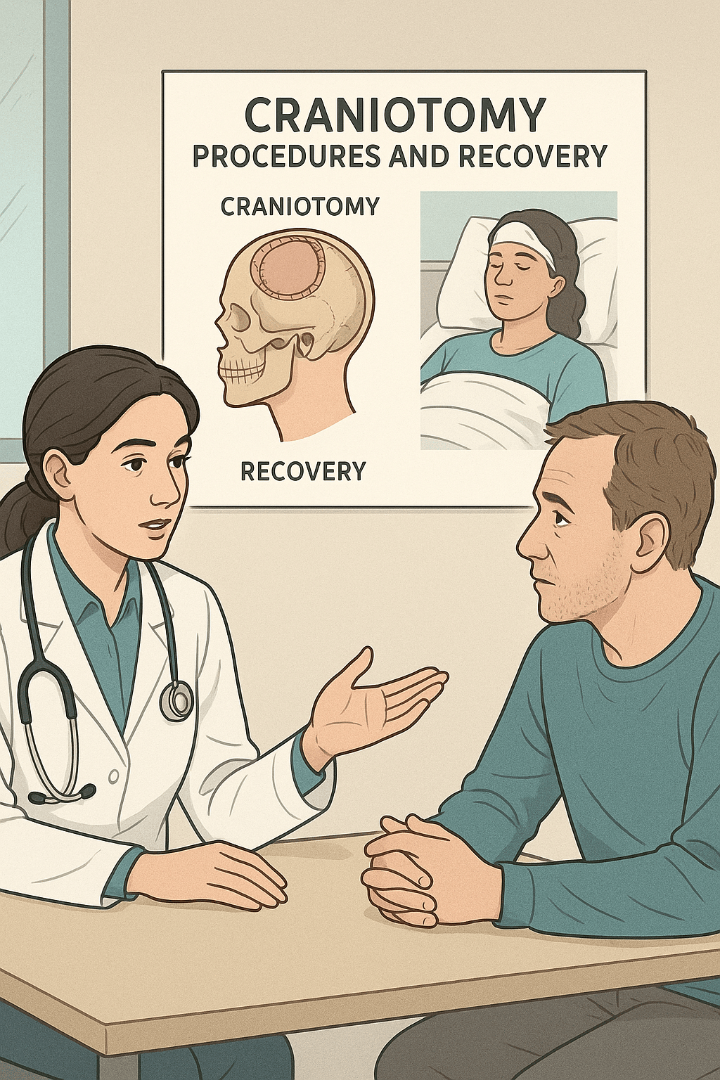What is Colporrhaphy and when is it needed?
Colporrhaphy is a type of reconstructive pelvic surgery performed to repair defects in the vaginal wall, particularly when pelvic organs such as the bladder (anterior repair) or rectum (posterior repair) protrude into the vaginal space—a condition known as pelvic organ prolapse (POP).
This condition typically affects women who have experienced:
- Multiple vaginal deliveries
- Menopause and related estrogen decline
- Chronic straining due to constipation or coughing
- Previous pelvic surgeries
- Genetic weakness in pelvic support tissues
Colporrhaphy helps restore the normal position of prolapsed organs, alleviating symptoms like pelvic pressure, urinary incontinence, or painful intercourse. It can be done alone or in combination with other pelvic surgeries.
What are the different types or techniques of this treatment?
There are primarily two types of Colporrhaphy procedures based on the location of the defect:
- Anterior Colporrhaphy (Cystocele Repair):
Used to correct the prolapse of the bladder into the vaginal wall. The surgeon strengthens the front vaginal wall by tightening the tissues. - Posterior Colporrhaphy (Rectocele Repair):
Addresses rectal prolapse into the vaginal canal. The back wall of the vagina is reinforced to restore anatomical support.
In some cases, a combined approach may be taken if both the anterior and posterior walls are affected. Additional techniques include:
- Use of native tissue repair (most common)
- Graft or mesh-assisted repairs (less common today due to complications)
- Minimally invasive techniques involving laparoscopic or robotic assistance
The choice of technique depends on the severity of the prolapse, patient age, sexual activity, overall health, and surgeon's experience.
What is the standard treatment protocol for international patients in India?
International patients receive highly personalized care when undergoing Colporrhaphy in India. The treatment protocol generally includes:
- Pre-Arrival Virtual Consultation:
Patients connect with the surgeon or medical coordinator to discuss symptoms, send diagnostic reports, and plan the travel timeline. - Preoperative Evaluation (Day 1–2):
On arrival, patients undergo detailed tests such as pelvic ultrasound, urodynamic studies, blood work, and anesthetic fitness evaluation. - Surgical Procedure (Day 3 or 4):
The surgery is performed under general or spinal anesthesia and lasts between 30–90 minutes. Minimal blood loss and a short hospital stay are common. - Hospital Stay and Initial Recovery (2–4 Days):
Patients are monitored for pain, infection, and urinary function. Mobility is encouraged within 24 hours post-op. - Post-Discharge Recovery (1–2 Weeks Local Stay):
Follow-up checkups ensure there are no complications. Patients receive guidance on wound care, activity restrictions, and pelvic floor exercises. - Return & Virtual Follow-up:
Patients can return to their home country with a detailed discharge summary and can consult virtually for follow-up care.
What kind of devices, implants, or surgical tools are used?
The instruments and materials used in Colporrhaphy are chosen based on the technique and the specific needs of the patient. Common tools and materials include:
- Absorbable sutures to approximate and strengthen the vaginal fascia
- Surgical retractors and speculums for access
- Laparoscopic or robotic instruments (in minimally invasive cases)
- Catheters and urinary drainage tools post-surgery
- Vaginal packing and dressings for support and healing
- In rare cases, synthetic mesh or grafts may be used, although modern practice favors native tissue repairs due to safety concerns
What is the cost breakdown of Colporrhaphy in India?
The overall cost of Colporrhaphy in India ranges from $1,500 to $3,500, depending on several factors. Here's a general cost breakdown:
- Surgeon Fees: $500 – $1,000
- Anesthesia Charges: $200 – $400
- Operating Room & Consumables: $300 – $600
- Hospital Stay (2–4 Days): $200 – $500
- Preoperative Investigations: $100 – $300
- Postoperative Medications & Support Care: $100 – $200
- Follow-up & Local Stay Support (optional): $100 – $500
This package may also include free airport pickup, medical visa assistance, and language interpreter services for international patients.
Why should international patients choose India for this treatment?
India has become a preferred destination for women seeking affordable and effective pelvic reconstructive surgery like Colporrhaphy. Here’s why:
- Expertise in Women’s Health: India has a large number of gynecologic surgeons specializing in prolapse and urogynecologic procedures.
- Affordable Packages: Even with travel and accommodation, the total cost remains much lower than in the US or Europe.
- State-of-the-art Hospitals: Indian medical centers are equipped with modern operating rooms, diagnostic facilities, and post-operative recovery services.
- Minimal Waiting Time: Patients get scheduled quickly, sometimes within a few days of contacting the hospital.
- Cultural and Language Support: Many hospitals offer multilingual support and services tailored for international patients.
- Visa and Travel Assistance: Seamless help with medical visa processing, airport transfers, and accommodation near the hospital.
India offers a unique blend of affordability, compassion, and medical sophistication—making it ideal for elective yet essential procedures like Colporrhaphy.
Why choose Healzone for safe and stress-free treatment in India?
Healzone is a trusted medical tourism facilitator that helps patients from around the world access high-quality care in India. Here’s how Healzone ensures a smooth journey:
- Verified Hospitals and Surgeons: Healzone partners only with accredited hospitals and board-certified gynecologic surgeons.
- Personalized Case Management: From initial consultation to discharge and return travel, patients receive end-to-end support.
- Transparent Pricing: Healzone offers fixed-price packages without hidden charges, with upfront estimates based on your case.
- Travel & Stay Coordination: From airport pickup to hotel booking, every detail is handled to reduce stress.
- Multilingual Patient Support: Coordinators fluent in Arabic, French, Russian, and other languages assist throughout the journey.
- Aftercare & Follow-Up: Even after you return home, Healzone ensures continuity of care with virtual consultations and medical record access.
With Healzone, patients don’t just receive treatment—they experience safe, respectful, and worry-free care.
What are the advantages of undergoing Colporrhaphy in India?
Choosing India for Colporrhaphy offers a blend of medical, financial, and cultural benefits. Some key advantages include:
- Cost Efficiency: The entire treatment, including pre-op tests, surgery, and follow-up, costs a fraction of what it does in Western countries.
- High Surgical Success Rates: Indian specialists have extensive experience treating complex prolapse cases, resulting in high patient satisfaction.
- Minimally Invasive Techniques: Many centers offer laparoscopic or vaginal approaches, which lead to faster healing and less discomfort.
- Comprehensive Women’s Health Services: Additional treatments such as hysterectomy, bladder sling surgery, or vaginal rejuvenation can be bundled if needed.
- Shorter Waiting Times: Most surgeries can be scheduled within a week of consultation, with expedited services for urgent cases.
- Travel-friendly Recovery Plans: Post-operative care is designed for patients who must travel after a short recovery period.
These benefits make India a safe and appealing option for women seeking restorative pelvic surgery with global standards of care.
What are the possible risks or complications?
As with any surgical procedure, Colporrhaphy comes with certain risks, though they are rare when performed by skilled surgeons. Patients are advised to understand both common and uncommon complications before making a decision.
Common Risks (Temporary):
- Pain and swelling in the vaginal area
- Mild bleeding or discharge
- Difficulty urinating in the first 24–48 hours
- Constipation due to pelvic tenderness
Less Common or Rare Risks:
- Infection at the surgical site
- Injury to the bladder or rectum (very rare)
- Urinary incontinence or retention
- Recurrence of prolapse (especially if lifestyle changes are not followed)
- Dyspareunia (pain during intercourse)
- Mesh-related complications (if mesh is used)
Indian hospitals minimize these risks through:
- Preoperative evaluation to assess comorbidities
- Antibiotic prophylaxis to prevent infections
- Strict adherence to surgical protocols
- Use of high-quality, biocompatible materials
- Post-op physiotherapy for pelvic floor strengthening
A transparent discussion with your surgeon is recommended to assess individual risks and benefits.
What is the recovery process and post-op care timeline?
Recovery after Colporrhaphy is usually smooth and well-tolerated, especially when patients follow medical advice and adopt lifestyle adjustments to support healing. Most women feel significantly better within a few weeks and return to normal activities in 4–6 weeks.
Typical Recovery Timeline:
Hospital Stay (Days 1–4):
Patients remain in the hospital for 2 to 4 days depending on the extent of surgery and whether it was anterior, posterior, or both. Vital signs, urinary function, and pain levels are monitored. Patients are encouraged to walk and hydrate early to promote circulation and prevent constipation.
Week 1–2 (Initial Recovery):
At home or in a hotel (for international patients), patients are advised to avoid bending, lifting, or straining. Pain is managed with oral medications, and a fiber-rich diet is encouraged to avoid constipation.
Week 3–6 (Gradual Healing):
Patients can resume light household tasks. Driving is usually permitted after 2–3 weeks. Follow-up visits are scheduled during this period for examination and suture checks.
After 6 Weeks:
Most patients return to work and regular life. Sexual activity and heavy lifting should still be avoided until cleared by the surgeon.
Post-Operative Instructions:
- Take all medications as prescribed, including painkillers and antibiotics.
- Maintain proper vaginal hygiene to prevent infection.
- Do not use tampons or insert anything vaginally until healing is complete.
- Perform pelvic floor exercises if recommended.
- Attend all follow-up appointments in person or virtually.
Recovery is faster and easier when the patient rests, eats well, and avoids unnecessary physical stress.
How should international patients prepare for this treatment in India?
Planning ahead ensures a smooth and stress-free experience when traveling to India for Colporrhaphy. Here is how international patients can prepare:
1. Initial Consultation:
Connect with a medical facilitator or hospital representative. Share your medical history, imaging reports, or previous gynecological records for evaluation.
2. Visa and Travel Planning:
Apply for a medical visa to India with support from the hospital. Patients are encouraged to book roundtrip travel with some buffer days for recovery and follow-up.
3. Pre-Arrival Preparation:
- Pack loose, comfortable clothing and sanitary pads.











